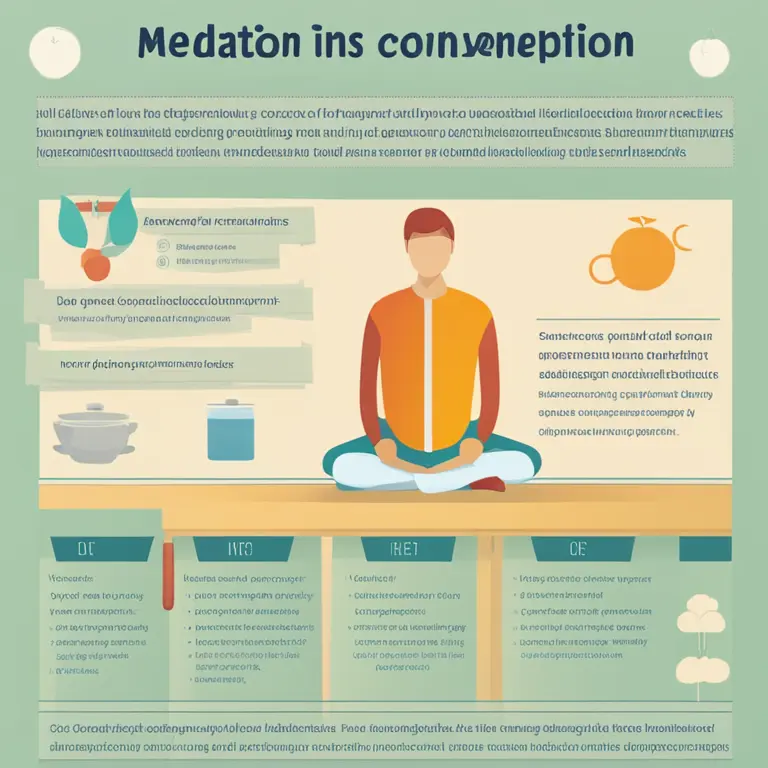
How Meditation Alleviate Depression?
Discover how meditation practices may offer a complementary approach to easing depression and enhancing mental well-being.
article by Hina Kurosawa
Introduction to Meditation and Mental Health
Meditation has long been revered as a powerful tool for cultivating inner peace and resilience. In recent years, its potential impact on mental health, particularly depression, has gained increasing attention from the scientific community. As the world grapples with soaring depression rates, many seek holistic alternatives to traditional treatments. Meditation offers a gentle yet potent avenue for individuals to empower themselves in their journey towards improved mental health. This article delves into the current understanding of how meditation may contribute to mitigating the challenges of depression.

The Science Behind Meditation's Efficacy
Research in the field of psychoneuroimmunology has shown that meditation can lead to changes in the brain and immune system that are linked to mood regulation. Neuroscientific studies indicate that regular meditation can increase neural plasticity, reduce the brain's response to stress, and enhance areas associated with positive emotions. Neurotransmitter production, including serotonin and dopamine, may also be influenced by consistent meditative practices, offering a promising complement to other depression treatments.

Different Meditation Techniques for Depression
Various meditation styles exist, and their effects on depression can differ. Mindfulness-based meditation encourages awareness and acceptance of present-moment experiences, which may reduce rumination and worry. Loving-kindness meditation fosters a sense of compassion towards oneself and others, combatting the isolation and low self-esteem often associated with depression. Structured meditation programs, like Mindfulness-Based Cognitive Therapy (MBCT), ensconce meditation within a therapeutic framework, explicitly designed for preventing depressive relapse.

Complementing Traditional Depression Treatments
While meditation can be beneficial, it's not a panacea and works best when integrated with conventional depression treatments like psychotherapy and medication. Mental health professionals increasingly view meditation as a valuable adjunct that may enhance the efficacy of these standard treatments, potentially leading to sustained recovery and better overall outcomes.

Individual Experiences and Tailored Practices
As with any intervention, the impact of meditation on depression will vary from person to person. Factors such as the type of meditation practiced, the individual's level of engagement, and the coexistence of other mental health conditions play a role in its effectiveness. Personalizing meditation practices and setting realistic expectations are critical steps towards attaining the most benefit from meditation for depression management.
Future Outlook and Ongoing Research
Emerging research continues to explore the depths of meditation's impact on depression. Forward-thinking studies aim to identify biological markers that predict responsiveness to meditation and to fine-tune meditation protocols for individual needs. As the body of evidence grows, meditation is poised to cement its place as a significant element in the holistic treatment of depression.
Published: 1/14/2024
Modified: 1/15/2024
More predictions
Come back here soon to learn more about yourself and your future


Mindfulness & Meditation: A Guide for High Schoolers
Discover the benefits of mindfulness meditation tailored for the hectic life of high school students, and learn simple strategies to incorporate it into the daily routine.


Easing Loneliness with Mindfulness Meditation
Explore how mindfulness meditation can provide solace and connection to alleviate the feelings of loneliness.


Harmonizing Life with Meditation Mantras
Delve into the transformative power of meditation mantras to align mind, body, and spirit for a harmonious existence.